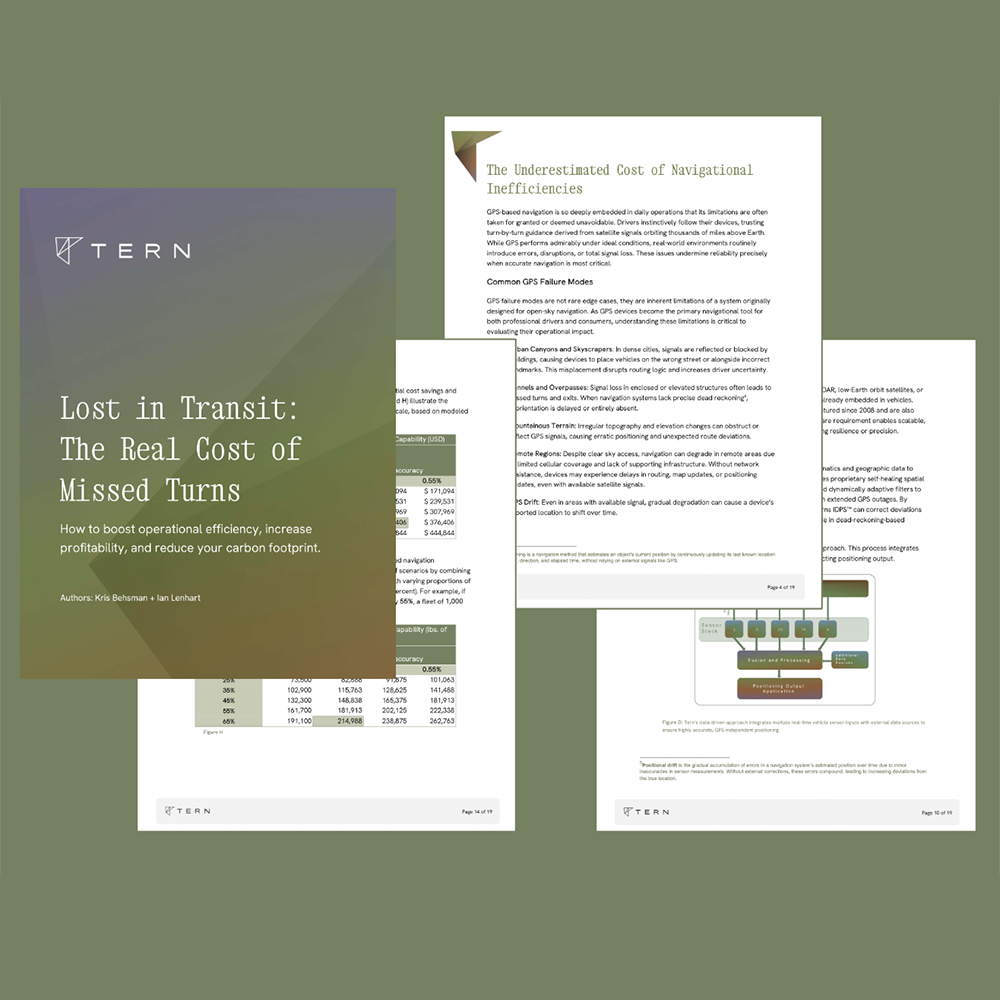Former U.S. Department of Transportation Leader Joins Tern to Advance its AI-Powered GPS Alternative
Diana Furchtgott-Roth Appointed to Advisory Board Amid Rising Global Pressures to Accelerate Satellite-Free Navigation Technology
Tern , the developer of the AI-powered navigation IDPS ™ (Independently Derived Positioning System), announced today that Diana Furchtgott-Roth, a nationally recognized transportation economist and former Deputy Assistant Secretary at the U.S. Department of Transportation (DOT), has joined its Advisory Board.
A long-time advocate for resilient and scalable alternatives to satellite-based positioning, Furchtgott-Roth brings decades of expertise at the intersection of transportation policy, infrastructure, and innovation. Her work at the DOT included leading national efforts to evaluate Positioning, Navigation, and Timing (PNT) technologies in response to increasing threats to GPS from outages, spoofing, and satellite vulnerability.
”Diana brings unmatched credibility and clarity on the urgent need for a GPS alternative,” said Shaun Moore, Tern CEO and Co-Founder. “Her leadership will be instrumental as we expand IDPS™ across commercial automotive , fleet, defense, and infrastructure sectors.”
Her appointment comes at a time of escalating geopolitical pressure. U.S.-China relations are under renewed strain, not just economically through rising tariffs, but geopolitically as tensions deepen across the Indo-Pacific. These pressures underscore the vulnerability of U.S. infrastructure that remains critically dependent on satellite-based systems. As trade frictions grow, so does the likelihood of adversarial disruption, making it imperative to accelerate deployment of resilient, non-satellite-based navigation solutions.
Furchtgott-Roth underscored this in The Daily Telegraph recently, writing, “Disruptions would pose an immense economic and national security threat, costing trillions of dollars daily, dwarfing any market disruptions from tariffs.” She continued, “The global cost of GPS interference is too high for world governments to wait for it to fail. This is an area where like-minded governments can and should work together to develop reliable back-ups, both for economic and military security.” She also wrote after evaluating IDPS™ that “Tern is a low-cost answer to a problem that the U.S. Department of Transportation has been working on for decades” in Forbes last year.
Tern’s IDPS™ uses vehicle sensors and AI to provide uninterrupted, high-accuracy navigation without GPS, GNSS, or cellular signals. The company recently completed successful testing with the Volpe Research Center, through a US Department of Transportation contract, including the first known “cold start” demonstration, accurately initializing position without any prior knowledge or external signal, a milestone long thought to be out of reach.
“Tern’s approach flips the model,” added Moore. “Rather than patching legacy systems, we’re building a new foundation for navigation that’s intelligent, resilient, and ready to scale.”
Watch Furchtgott-Roth discuss the topic of GPS alternatives.







